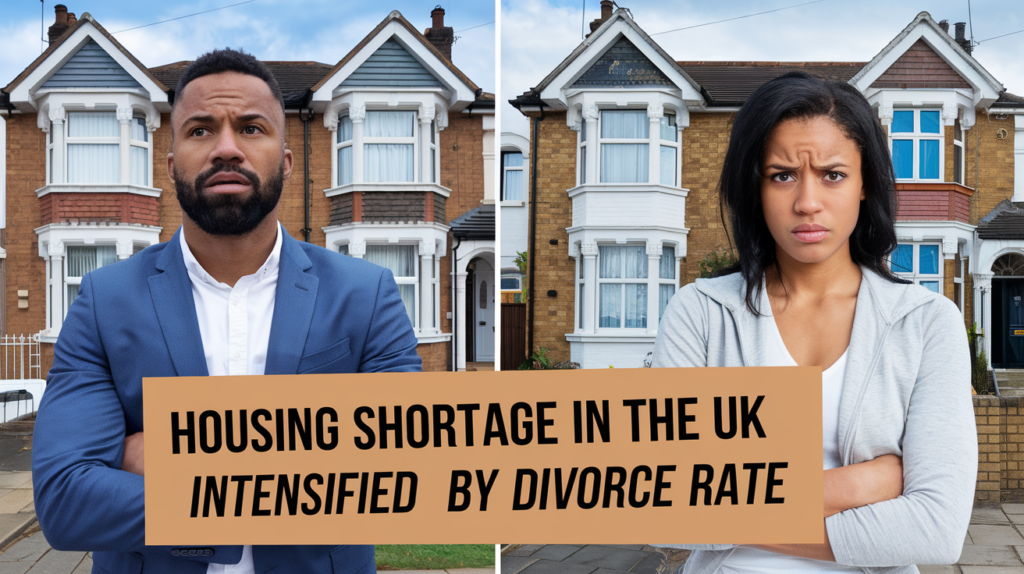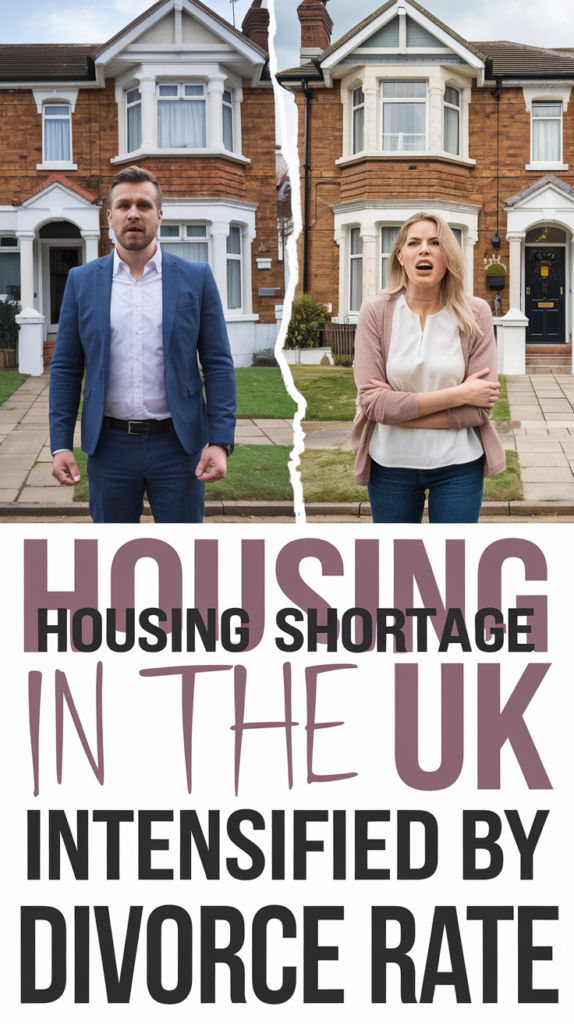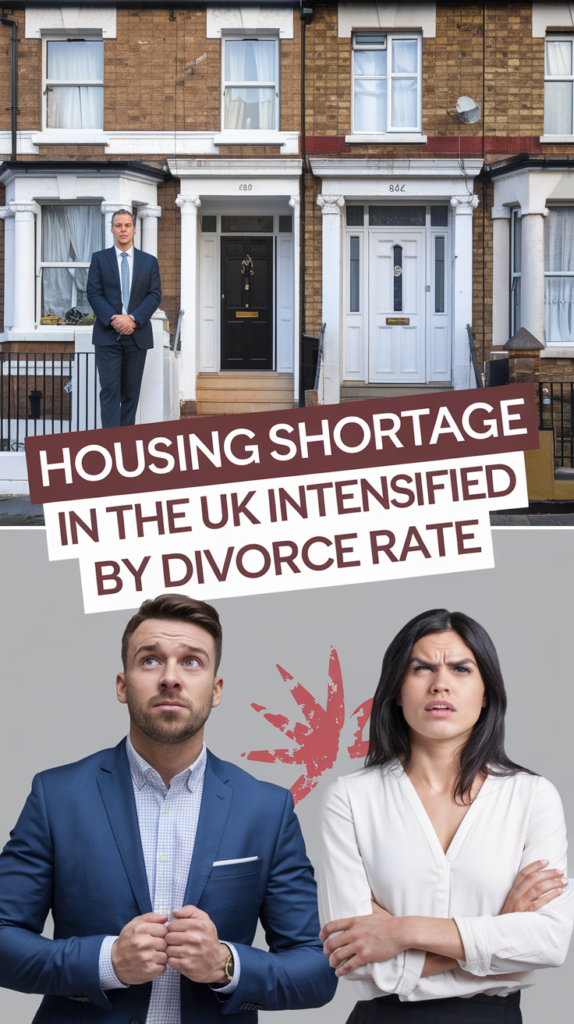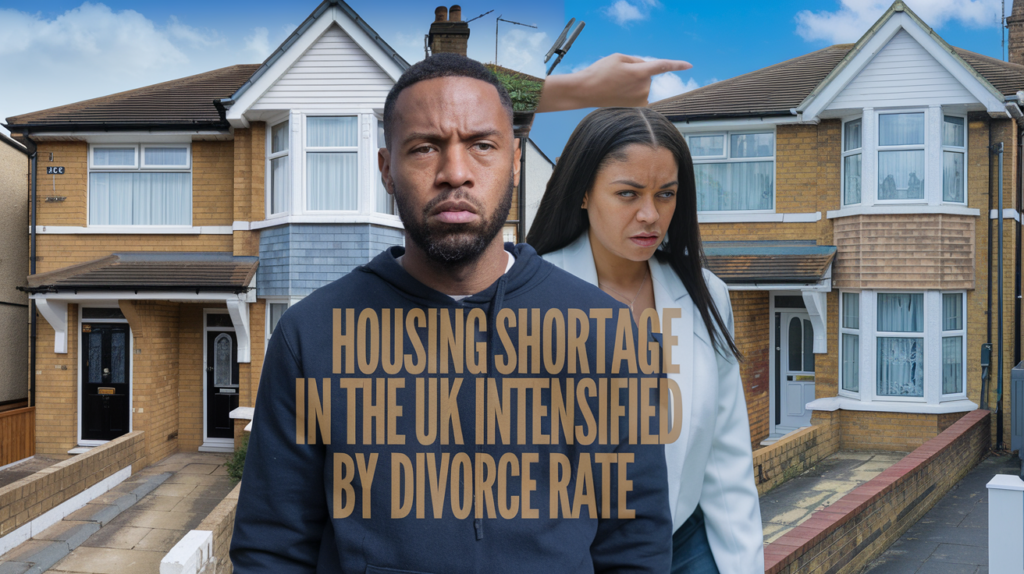
Housing Shortage In The UK Intensified By Divorce Rate
The United Kingdom is facing a severe housing crisis, for reasons ranging from shortage of AFFORDABLE homes, rising prices of available homes, and people’s inability to save their money, due to increasing bills rising divorce rate, and VAT, and this has led to stress, fear of the unknown, bills, and homelessness.
- Cover Only: Boho Decorative Lumbar Throw Pillow Cover 14×36 Inch for bed
- Color: Blue Cream White
- A Decorative Accent : Whether you’re looking to enhance your living room, bedroom, or even a cozy reading nook, this boh…
The country’s rising divorce rate is a very well-overlooked factor contributing to this crisis. It easily goes unnoticed, but now it is seen as a significant aspect because it plays a vital role in creating pressure in the housing market.

Back when humans were not as many as 8 billion, the stage in life used to be a young boy and girl growing up with individual families, and moving in together as a couple, they build their life up from there. But today with over 8 billion people alive, the stages of life seem to be a girl and a boy growing up at home, then renting their indicated homes and moving out of the house.
- 1. Premium Chenille Fabric:Crafted from high-quality chenille, these cushion covers offer a soft, durable, and luxurious…
- 2. Size & Handmade Finish: Each set includes two cushion covers measuring 45 x 45 cm (18 x 18 inches). Please note: inse…
- 3. Wide Range of Colours:Available in a variety of attractive colours to suit any décor style. Easily mix and match to r…
They are dating people but can’t seem to find the one, which they are not sure to will find soon enough, so instead of one house, two houses are in use by two people.
Now in the case where they eventually see the one, they get married and move in together, but that is not the final step, because the couple may split, and move into two different houses because they are suddenly enemies who can’t stand each other.
- A smaller cushion cover that’s perfect for a smaller throw pillow insert together with lots of other cushions inviting y…
- The best pick if you’re looking for that lush softness that only velvet can offer. Solid texture also adds more style to…
- Solid velvet texture is sewed into the fabric to make it extra durable, hidden zipper, extra soft velvet double-sided.
As more couples split, the demand for separate living arrangements grows, and not just that, more cars are driven individually, which further strains the already tight housing market, and pollutes the already overwhelmed environment.

1. The Rising Divorce Rates in the UK
The UK divorce rate has been steadily increasing over the past few decades. According to the Office for National Statistics (ONS), the divorce rate in England and Wales has risen by 18% since 2010. In 2019, there were 107,599 divorces in England and Wales, equivalent to approximately 1 in 5 marriages ending in divorce, and that is more things being requested in twos, instead of the share case that marriage presents.

2. Impact of Divorce on Housing Demand
When couples divorce, they often require separate living arrangements, leading to an increase in household formation. This trend has significant implications for housing demand.
As more households are formed, the demand for housing increases, driving up prices and rents, because demand is surpassing the supply, and that makes the housing agents very happy and rich.

In the UK, the houses in the cities and towns are relatively small, so you do expect estranged couples to share. They will be in each other’s personal space. The average household size has decreased from 2.4 people per household in 2001 to 2.3 people per household in 2019.
This decline in household size is largely attributed to the increasing number of single-person households, which has risen by 16% since 2001 because a very different lifestyle came into play. Women can no longer with for a prince charming who may or may not come to your emotional rescue.

3. The Housing Shortage Crisis
The UK’s housing shortage crisis is well-documented. The country faces a significant shortage of affordable homes, with many households struggling to access housing that meets their needs and budget. According to the National Housing Federation, the UK needs to build at least 300,000 new homes per year to meet demand. This demand includes the people who have stopped being married to each other.
However, the actual number of new homes being built falls far short of this target. In 2020, only 178,000 new homes were completed in the UK, leaving a significant gap between supply and demand, about 122,000.

4. Consequences of the Housing Shortage
The consequences of the housing shortage in the UK are far-reaching. Many households are forced to live in overcrowded or unsuitable conditions, while others are priced out of the market altogether. Homelessness rates have also increased, with many individuals and families unable to secure stable housing.

5. Solutions to the Crisis
To address the UK’s housing shortage crisis, policymakers and stakeholders must consider the impact of rising divorce rates on housing demand. Potential solutions include:
- Increasing housing supply: Encouraging developers to build more homes, particularly affordable and starter units, can help alleviate the shortage. This is currently ongoing, which means that the Government is aware of the needs.
- Promoting affordable housing options: Governments can offer incentives for developers to build affordable housing, and implement programs to help low-income households access housing.
- Addressing divorce and household formation: Policymakers can explore initiatives to support families and promote stable household structures, such as counselling services and education programs, rather than people only considering divorce when they encounter challenges in the marriage, leading them to go their separate ways.

Conclusion
The UK’s housing shortage crisis is a complex issue, influenced by various demographic and socioeconomic factors. The rising divorce rate is one often-overlooked factor contributing to this crisis because we focus on the end of a relationship, but overlook the impact it has on the society and environment. Divorce drives up demand for housing and exacerbates the shortage. To effectively address the crisis, policymakers and stakeholders must consider the impact of divorce on housing demand and develop targeted solutions to increase housing supply, promote affordability, and support stable household structures.










